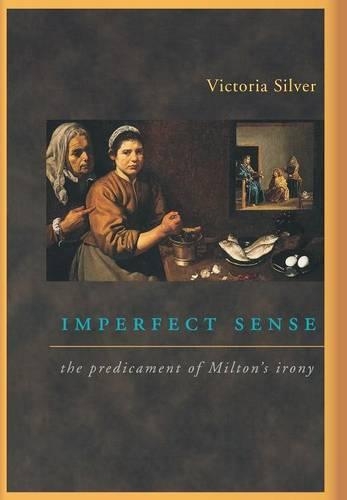
Imperfect Sense: The Predicament of Milton's Irony
(Hardback)
Publishing Details
Imperfect Sense: The Predicament of Milton's Irony
By (Author) Victoria Silver
Princeton University Press
Princeton University Press
28th August 2001
United States
Classifications
Professional and Scholarly
Non Fiction
Literary studies: general
821.4
Physical Properties
Hardback
424
Width 152mm, Height 235mm
482g
Description
Why do we hate Milton's God Victoria Silver reengages with a perennial problem in Milton studies, one whose genealogy dates back at least to the Romanics, but which finds its most cogent modern expression in William Empson's revulsion at Milton's God and Stanley Fish's defense. Thoroughly reexamining Milton's theology and its sources in Luther and Calvin, as well as thecretical parallels in the works of Wittgenstein, Cavell, Adorno, and Benjamin, Silver contends that this repugnance is deliberately cultivated in the theodicy of Paradise Lost. From the vantage of a world riven by injustice, deity can appear to contradict its own revelation, with the result that we experience a God divided against himself. For as Job found in his sufferings, that God appears more ruse than redeemer. Milton's irony recreates this religious predicament in Paradise Lost to the intractable perplexity of his readers, who have in their turn fashioned an equally dissociated Milton - at once unconscious and calculating, heterodox and doctrinaire, heroic and intolerable. Silver argues that, ultimately, these contrary Gods and antithetical Miltons arise from the sense we want to give the speaker's justification, which rather than ratifying our assumptions of meaning and the incoherence they foster, seeks fundamentally to reform them and thus to justify God's ways. Focusing on Shakespeare's Harnlet as foremost a study of grief, Alexander Welsh offers a powerful analysis of its protagonist as the archetype of the modern hero. For over two centuries writers and critics have viewed Hamlet's persona as a fascinating blend of self-consciousness, guilt, and wit. Yet in order to understand more deeply the modernity of this Shakespearean hero, Welsh first situates Hamlet within the context of family and mourning as it was presented in other revenge tragedies of Shakespeare's time. Revenge, he maintains, appears as a function of mourning rather than an end in itself. Welsh also reminds us that the mourning of a son for his father may not always be sincere. This book relates the problem of dubious mourning to Hamlet's ascendancy as an icon of Western culture, which began late in the eighteenth century, a time when the thinking of past generations - or fathers - represented to many an obstacle to human progress. Welsh reveals how Hamlet inspired some of the greatest practitioners of modernity's quintessential literary form, the novel. Goethe's Wilhelm Meister's Apprenticeship, Scott's Redgauntlet, Dickens's Great Expectations, Melville's Pierre, and Joyce's Ulysses all enhance our understanding of the play while illustrating a trend in which Hamlet ultimately becomes a model of intense consciousness. Arguing that modern consciousness mourns for the past, even as it pretends to be free of it, Welsh offers a compelling explanation of why Homlet remains marvelously attractive to this day.
Reviews
"A masterful rethinking of Milton's work, this book is sure to become a standard text for all dedicated students of religious poetry ... As a sensitive exploration of the unknowable deity of God and its ramifications for human faith, Silver's book should be of interest to anyone concerned with Milton specifically or Christian thought more generally."--Heather Shillinglaw, Religious Studies Quarterly
Author Bio
Victoria Silver is Associate Professor of English Literature at the University of California..
